I didn’t even know The United Nations could accredit fashion brands until I spoke to Untouched World; a sustainable, designer fashion company based in Christchurch, New Zealand. I’ve never been one to work/talk with designer brands because well, they don’t usually come knocking at my door, but also because they’re not the kind of place I or many people I know would think to shop. However I know that this blog has readers from a wide variety of backgrounds, many of whom can either afford that more luxurious lifestyle, or are more prone to save money and invest in one quality piece of clothing over several fast fashion fails. I was intrigued by Untouched World’s relationship with the UN, and was keen to learn more about the sustainable education programmes that earned them their recognition (although I just wanted to be honest that I am not crazy wealthy).

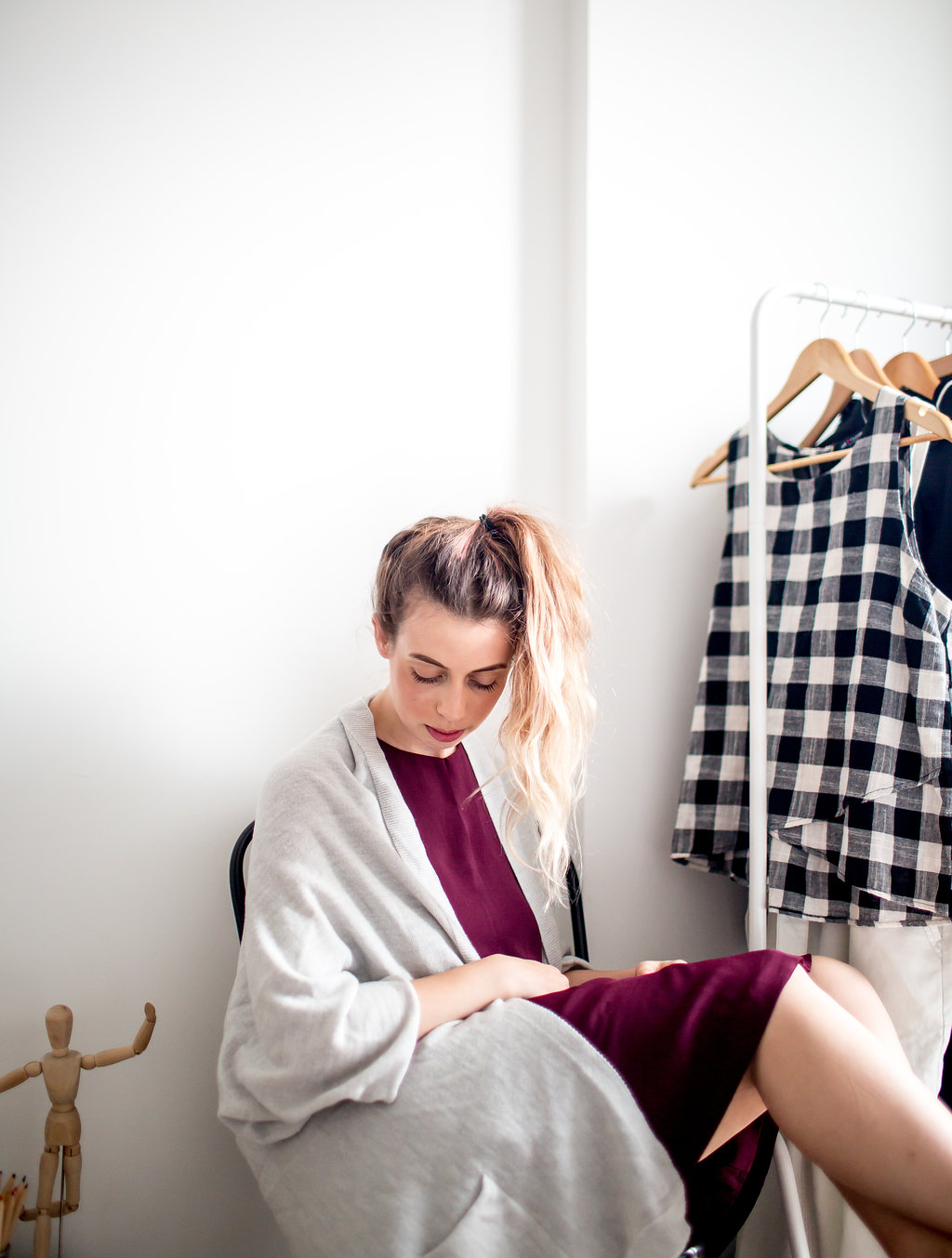
Since their launch in 1995 Untouched World have been invited as one of twelve global exemplars at the United Nations meeting to discuss how to engage the corporate sector in education for sustainable development, they have exhibited at the United Nations Mid Decade World Conference in Education for Sustainable development, and they’ve provided reports and input to the UN’s Sustainable Education initiatives.
This is mainly due to their work through the Untouched World Charitable Trust (UWCT), which was established in 2000 and is funded by Untouched World, aiming to make a difference outside of business, using profits made from business. The trust delivers ‘leadership for a sustainable future’ programmes across New Zealand for 16 -17 year olds, and pre-service teachers and tertiary trainees. The students and pre-service teachers are mentored by lecturers, teachers and community educators from a range of backgrounds; focusing either on the quality, use and availability of water in New Zealand or the biodiversity of the country’s national bird (Kiwi), and empowering young people to action for sustainable causes. Some of the programmes have been running for as long as fifteen years now, and have seen amazing success. In 2007 Untouched World became the first and only fashion company in the world to be given permission by UNESCO to carry the United Nations Decade of Education for Sustainable Development (UNDESD) logo, making them one of three global exemplars for empowering and mobilising youth through their programmes.


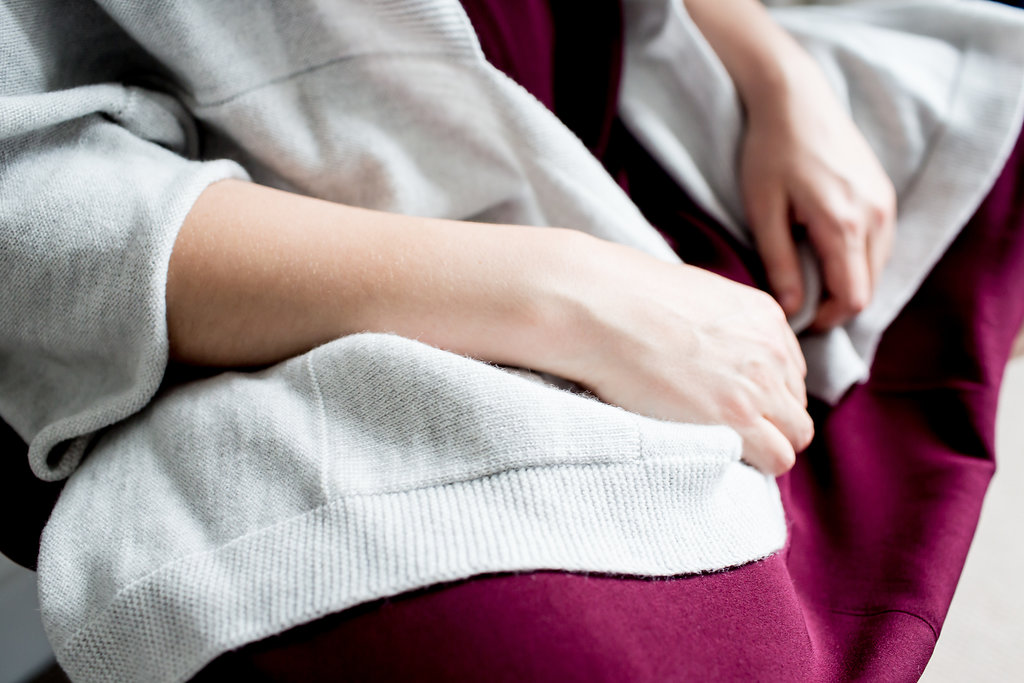
Along with learning about their educational work, Untouched World sent me one of their Queen Bee jackets to try out, which is made from 100% sustainably sourced Merino. I’ve honestly never had to think about wool much, simply because I’ve never owned anything woollen. All my jumpers/warm layers are secondhand and just happen to not have been made from wool. Wool is understandably a murky issue for some; there has been awful footage coming to light in recent years of horrific sheep abuse from certain companies in the wool industry, and so it is important to consider that if you are going to buy something made of wool, you need to know that it’s coming from an accredited, ethical source.
I think Leotie Lovely summarises the complications with wool best:
‘The other options available often leave only synthetic choices (whether it’s leather, knits or otherwise), which are horrible for the earth and her inhabitants, including all wildlife. It’s a catch 22, avoiding harming animals by avoiding their byproducts and harming animals anyway because the alternatives to their byproducts are harmful to wildlife… When it comes to wool, look for a loved up transparent label. A brand that at least claims to be ethical and ecological (I’m not talking about H&M and the other greenwashers like them here, I’m talking about genuine humans who run a genuine business because they genuinely want to change the world). It is almost impossible to maintain ethical wool, or ethical anything for that matter, in situations of mass production (what you’ll find in the malls and on the high street). To be sustainable, sheep must be native breeds on home soils from small farms who treat their heard like family.’
Untouched World’s use of wool, smaller company size, and dedication to sustainability fits this label, and their wool is all sourced from native farms within New Zealand. One of the main issues with the harvesting of Merino wool is mulesing, a cruel and painful procedure which Merino sheep can be subject to. This has been being phased out since 2007 in New Zealand, and is hopefully going to be illegal very soon (unlike other Merino producers like Australia or China), however New Zealand also has an accreditation program in place known as ZQ. ZQ requires Merino suppliers all adhere to a strict no-mulesing policy as well as causing no physical harm to sheep in the shearing process, requiring them to leave good covering of wool to keep sheep warm, similar to a number four haircut on a person. All Untouched World Merino products are accredited, and ZQ carry out regular audits on their farms and suppliers. The sheep that provide Untouched World’s wool graze on free range mountain pastures, which suits both the typography of New Zealand (described as alpine and sub-alpine grassland, which basically means mountain grassland) and the robust nature of the sheep, with most of the Merino sheep population in New Zealand living in the Southern Alps of the South Island.
Around a year ago, before Ethical Unicorn even began, I happened to randomly meet a sheep shearer in New Zealand who works on the South Island (where Untouched World is based, along with 97% of Merino sheep). We chatted for a good while and he talked to me about his work and the nature of sheep farming in New Zealand, a culture which I believe is unique to the New Zealand perspective and way of life. He was clear that ZQ accredited sheep farmers care greatly for the welfare, health and happiness of their flocks (read more on ZQ here) . While wool is never going to be everyone’s cup of tea, which is completely understandable, I think if you are going to buy wool over a synthetic, buying ZQ accredited Merino is one of your best options.
Untouched World also use swing tags on printed recycled paper with vegetable-based inks and cotton thread, and labels are printed on organic cotton. Almost everything is produced in New Zealand in legal, safe and well paid environments with employee benefits, apart from GOTS organic cotton pieces, because cotton doesn’t grow naturally in New Zealand. When things are manufactured abroad Untouched world only works with fair manufacturing companies that allow unchaperoned and unannounced personal visits with access to all of their staff at any time, and they’re also accredited as being child labour free.
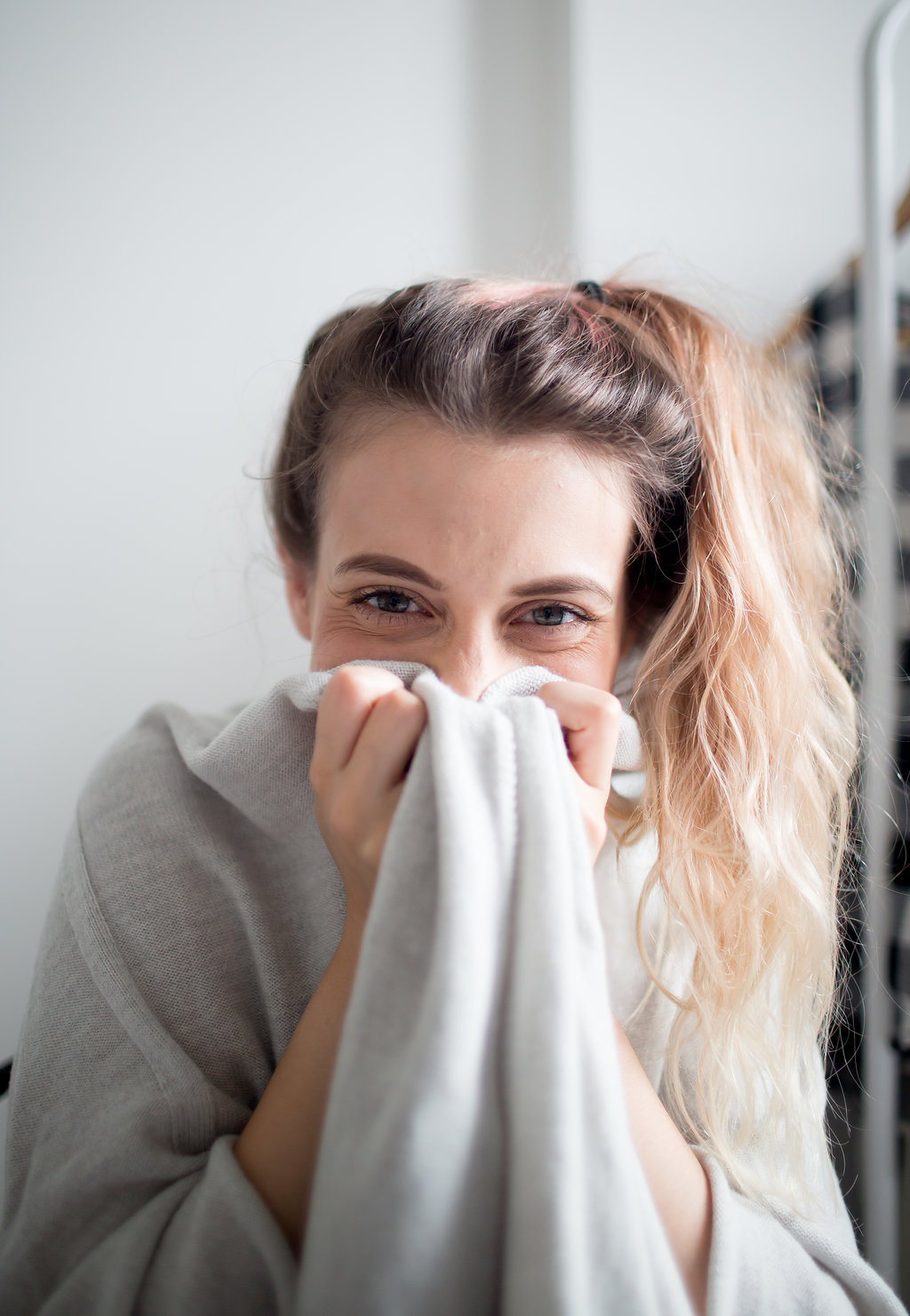
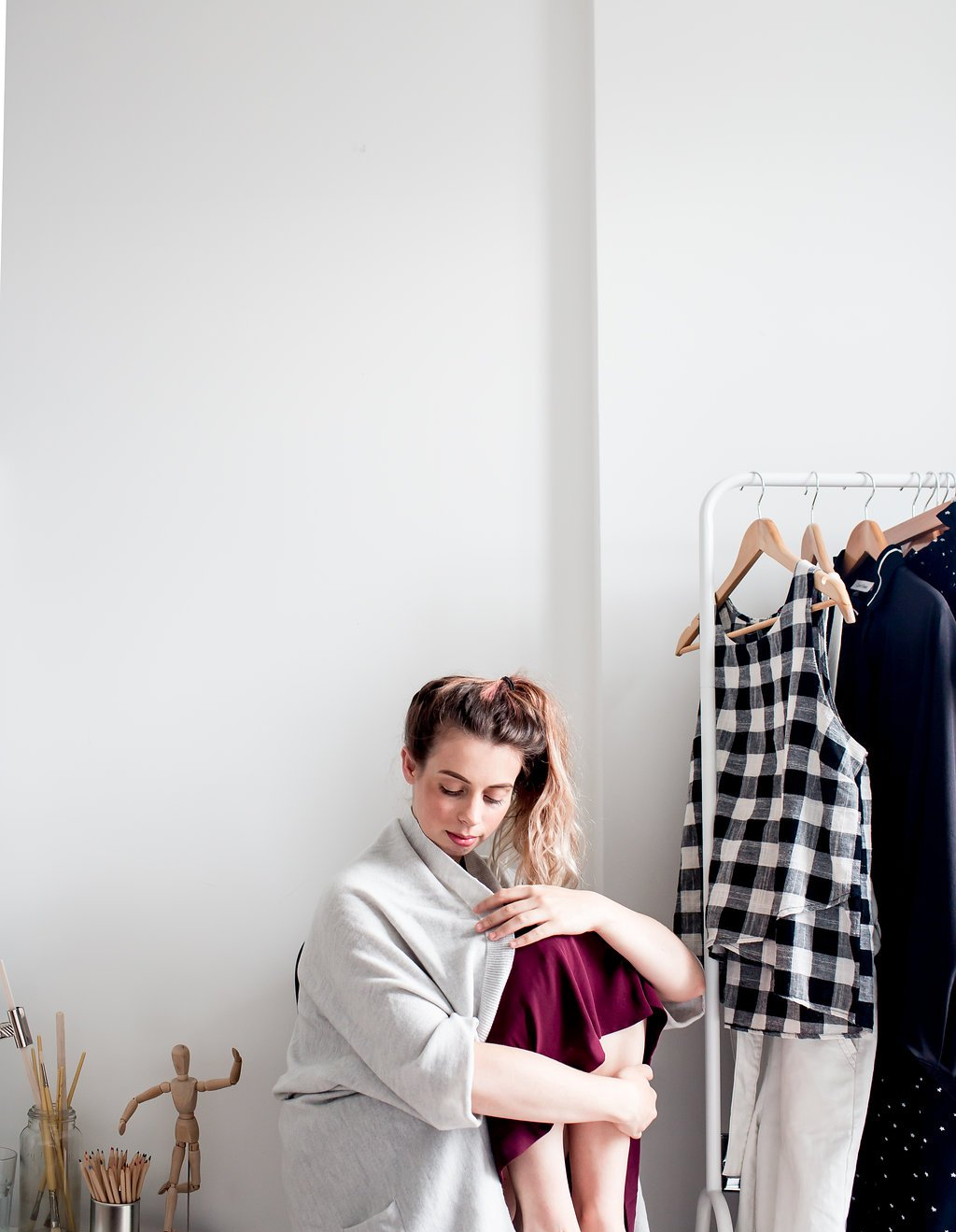
When it comes to this actual jacket I can’t exactly compare it to other wool, because I don’t know what it’s like to wear, but I can say that it does have a very different feeling to synthetics. I’m very aware that this is an expensive piece, but the encouraging thing is that it has the quality to match. The jacket is extremely lightweight, soft and intricately crafted, but still a great layer for warmth; making it the perfect go to option for days where it’s just a little chilly, as an alternative to bulky layers, or for things like weddings when it’s hard to find a warm layer that can be dressed up. It can actually be worn two ways by being flipped upside down, thanks to loose fitting sleeves that make this feasible (some serious design genius there) so can be both a long jacket and a shorter one that looks more like a throw. I think versatility in a product is often a key factor for minimalism and a sustainable wardrobe, and this is definitely versatility, you could wear it two days in a row and people not realise it’s the same item! Now that is easy. It’s also one of the most luxurious items I’ve ever seen, whilst still being fully biodegradable and compostable at the end of it’s life, giving that extra reassurance that it won’t end up in a waste pile one day (although, let’s be real, I’ll probably own it for the rest of my life). Ultimately this is a pricey luxury piece, but the beauty of it is that unlike fast fashion companies, who will happily sell something that was made for a fraction of the price they’re asking and pocket the profits, I know that the cost of the item is fed back into ethical manufacturing and sustainable farming practises, as well as globally respected sustainable education initiatives, which is a place I’d be happy to see my money go.
Until next time, stay magic y’all.
Post created in collaboration with Untouched World.


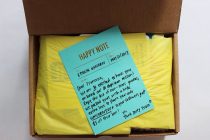
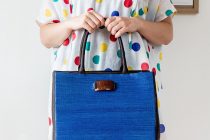


3 Comments